When the term “Flat White Economy” first cropped up in the busy streets of the UK, it was seen as the merging of two very distinct but increasingly interrelated worlds: the fast-growing digital economy and the modern urban coffee culture. However, as we glance across continents and delve into the South African context, a complex interplay of history, disparity, and digital emergence takes centre stage.
South Africa, with its diverse and intricate history, is no stranger to transformation. From the end of apartheid to its position as the ‘Rainbow Nation,’ the country has constantly been in a state of flux. Now, the Flat White Economy represents a new kind of revolution – a digital one.
While Silicon Valley might have been the go-to synonym for tech innovation in the past, African cities are fast claiming their stake. In the lead for spearheading this movement in the continent are South African giants like Cape Town and Johannesburg. Tech incubators and start-ups are sprouting at an unprecedented pace, turning these cities into vibrant tech hubs. Firms like Jumo, which specializes in next-gen financial services, Yoco, which offers smart solutions for small businesses, and SweepSouth, a platform connecting domestic workers with homeowners, are changing the narrative. They are not merely surviving; they are thriving and showcasing South Africa’s prowess in adapting to the digital age.
Brewing Ideas: The Coffee Culture Connection
Parallel to this digital ascent is the rise of coffee shops. In urban centres like Braamfontein or the artsy corners of Woodstock, the aroma of freshly brewed coffee often mingles with ideas about the next big app or start-up. Cafés have evolved from mere eateries to co-working spaces, networking zones, and even incubators for nascent ideas. They epitomize the essence of the Flat White Economy, where caffeine fuels both bodies and business dreams.
But as with every silver lining, there’s a cloud. South Africa’s socio-economic landscape is marked by stark disparities. The country has struggled with high unemployment rates, especially among its youth. The Flat White Economy, in its growth, has the potential to bridge this gap, creating jobs and opportunities.
However, without an inclusive approach, it could further exacerbate disparities. If the digital boom remains confined to the urban elite, the economic chasm will only widen. On the flip side, an inclusive digital growth strategy could see a rise in employment rates, more equitable wealth distribution, and even an improvement in living standards across various societal strata.
Challenges, of course, are aplenty. South Africa, though advancing digitally, still grapples with some foundational infrastructure challenges. Stable internet connectivity, a prerequisite for a booming digital economy, remains inconsistent across regions.
Additionally, there is limited access to quality education and training required to meet the demands of the digital sector. As tech firms and start-ups rise, the demand for skilled professionals in AI, machine learning, data analytics, and other tech domains is skyrocketing. The country needs to address this skill gap urgently.
Another subtle but significant challenge is gentrification. As urban centres morph into tech hubs, real estate prices surge, often displacing long-term residents and altering the cultural fabric of neighbourhoods.
South Africa’s Flat White Economy isn’t a mere economic model; it’s a cultural evolution. As the country moves from traditional industries to a digital paradigm, there’s an evident shift in cultural norms and values. The digital domain, though global, doesn’t overshadow South Africa’s rich local culture. Instead, it witnesses a blend, a confluence of local ethos with global digital trends.
The Road Ahead
This digital renaissance promises an array of benefits for South Africa. Beyond economic rejuvenation, it beckons international investors, placing South Africa on the global map as a land ripe with opportunity and innovation. The innovations aren’t just mimicking global trends; they are rooted in the African context, addressing local challenges and nuances.
For instance, the rise of Aerobotics, a start-up using AI-driven drones for agriculture, highlights the innovative spirit, adapting global tech advancements to address local agricultural challenges.
On the café front, Stellenbosch’s Blue Crane Coffee Shop serves as a testament. Beyond its brews, it’s an unofficial digital hub where tech enthusiasts, developers, and entrepreneurs converge.
South Africa stands on the cusp of a transformative era. The Flat White Economy promises a brighter future, but it’s essential that this promise reaches every South African, regardless of socio-economic background. The blend of African tradition and modern innovation positions South Africa uniquely, allowing it to lead in the global digital space. However, this potential will be realized only if inclusivity remains at its core.
The Flat White Economy is more than a catchy phrase; it represents hope, opportunity, and a new direction for South Africa. With the right strategies, balanced growth, and an emphasis on inclusivity, South Africa can not only adapt to the digital age but can also lead the way, setting benchmarks for the world.
For further insights, refer to:
“The Digital Turn: South Africa’s New Digital Economy” – Dr. L. Mkhize
“From Beans to Bytes: How Coffee Shops Shape SA’s Digital Future” – A. Sisulu
SweepSouth’s Journey: An African Startup Tale
“Digital Infrastructure in SA: Challenges & Opportunities” – TechSA Report 2023

